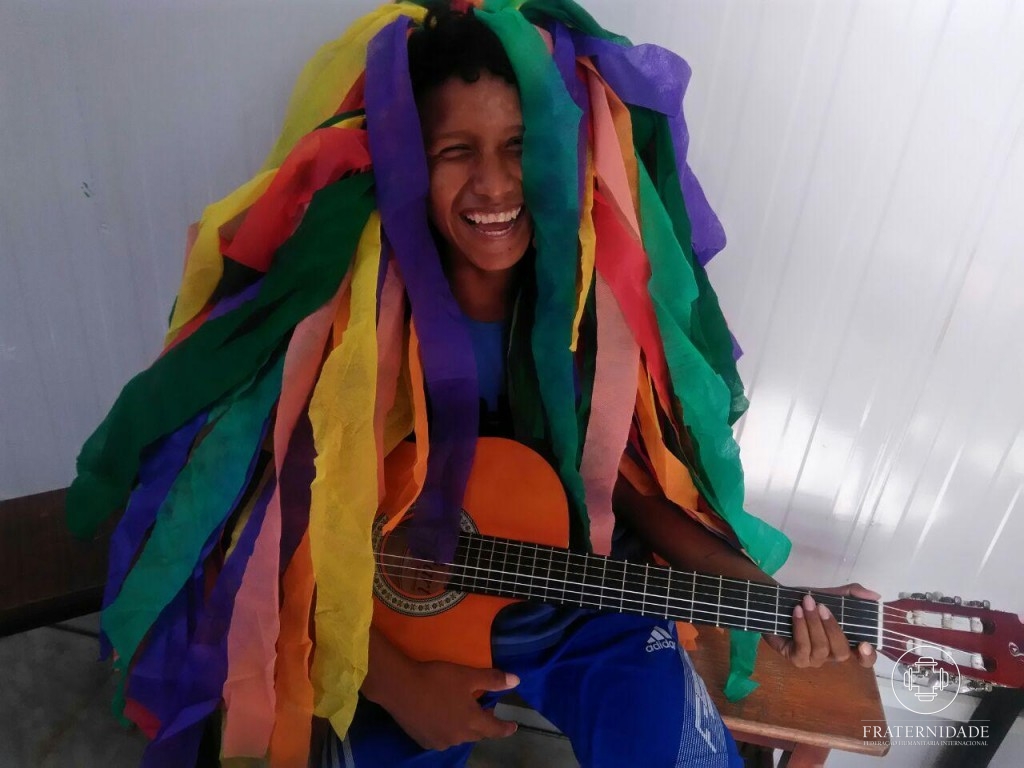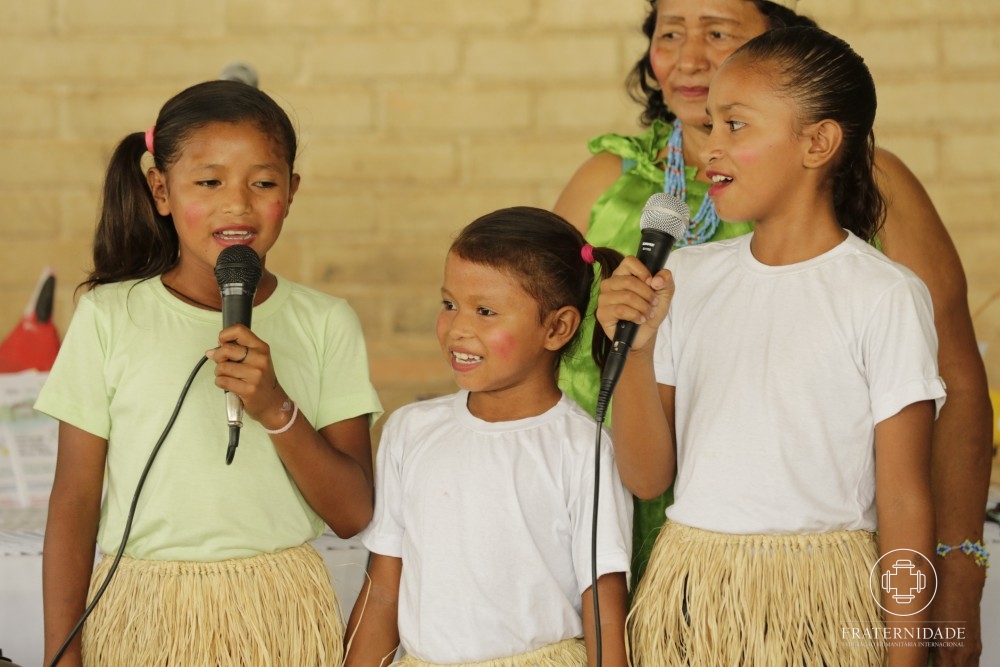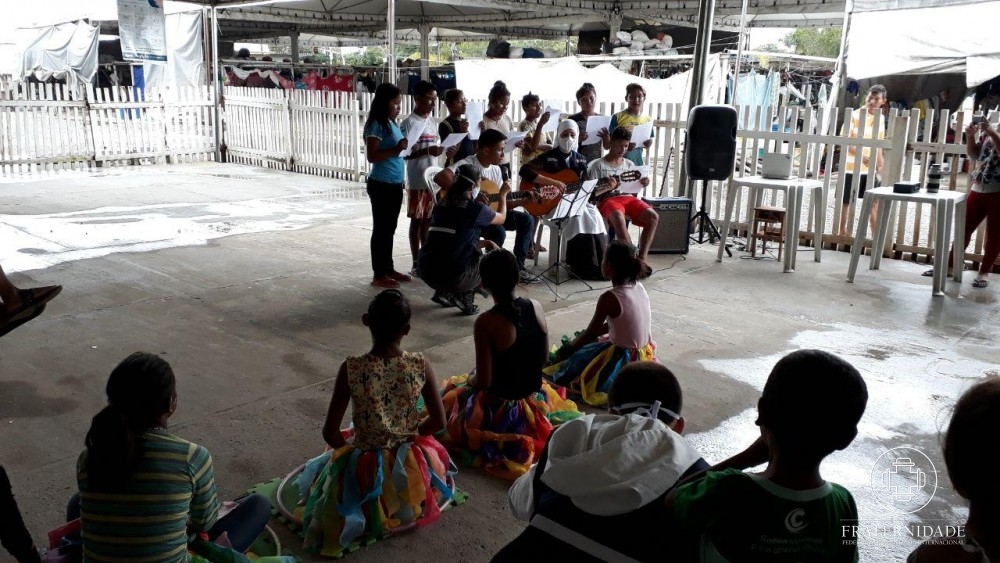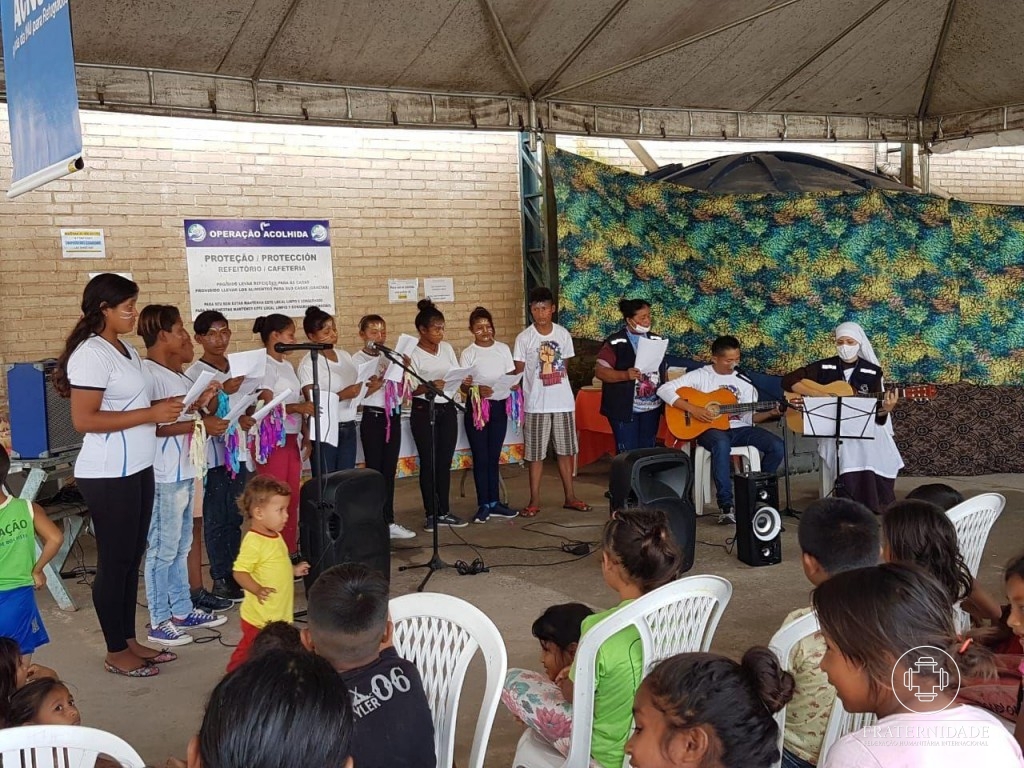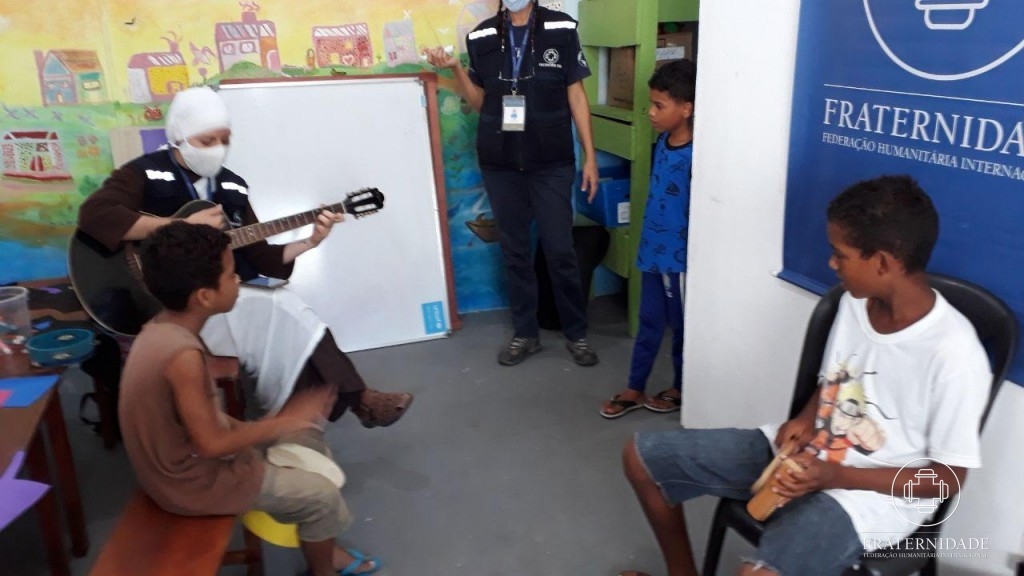Music is an instrument of communication with the innermost levels of existence. The drumming, harmonies, scales and the most diverse rhythms integrate everyone’s taste, regardless of age, ethnicity, gender, or social condition and life context.
Thousands of years ago, the Sufis searched for what they called the “purity of life” with the use of musical instruments. They were not the only ones: all the religions of the world make use of music as a method, and more recently, science has begun to use it.
The practice of music, more than entertainment, can symbolize healing and a special support for the refugees in the shelters under the management of the Fraternity – International Humanitarian Federation (FIHF), in partnership with the United Nations High Commissioner for Refugees (UNHCR).
Patricia Balloni, missionary of the Fraternity (FIHF) and coordinator of the Art Education sector, explains that the inclusion of music in the activities began in a spontaneous way. The sector operates in three main areas: artistic expressions, which include music; the educational vegetable garden, where work with the Plant Kingdom is done; and the sports sector.
“There is a Warao native in the Pintolândia shelter, for example, that likes music a lot, learned to play the violin on his own, and has already composed some songs. He plays and sings beautifully. So we gradually have this interaction with what we see happening,” illustrates Patricia. Missionaries with musical abilities began to make this deeper kind of contact.
In the Janokoida and Pintolândia Shelters, where the natives of the Warao and E’ñepa ethnicities stay, music came in their baggage. “They have their traditional songs, in their own languages,” comments the coordinator.
Music transcends geographic, cultural, and linguistic borders. Many of the indigenous children in the shelter do not speak Portuguese or Spanish – which limits communication with the missionaries, but not the effects of sounds. “We see and know that it has great repercussions, it is a connection,” says the missionary.
In the Tancredo Neves Shelter, a man enjoys making musical parodies. “He sees you and starts singing; it’s very interesting,” says Patricia.
Scientific evidence shows the effectiveness of musical techniques in meeting physical, emotional, mental, and social needs. They contribute to improving the relationship, mobilization, relaxation, expression, organization, and learning.
The situation of vulnerability to which the Venezuelan refugees are subject requires a long and patient rehabilitation work so that the traumas and pain may be alleviated.
“Music organizes and synthesizes. Many things that can’t be solved intellectually with the mind, are resolved when truly listening to music. Many evils can be avoided,” said José Trigueirinho Netto, a philosopher and one of the founders of the Fraternity (FIHF).

